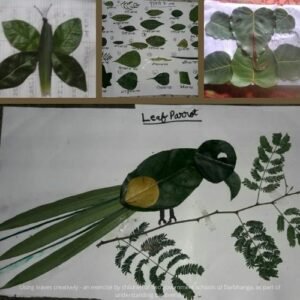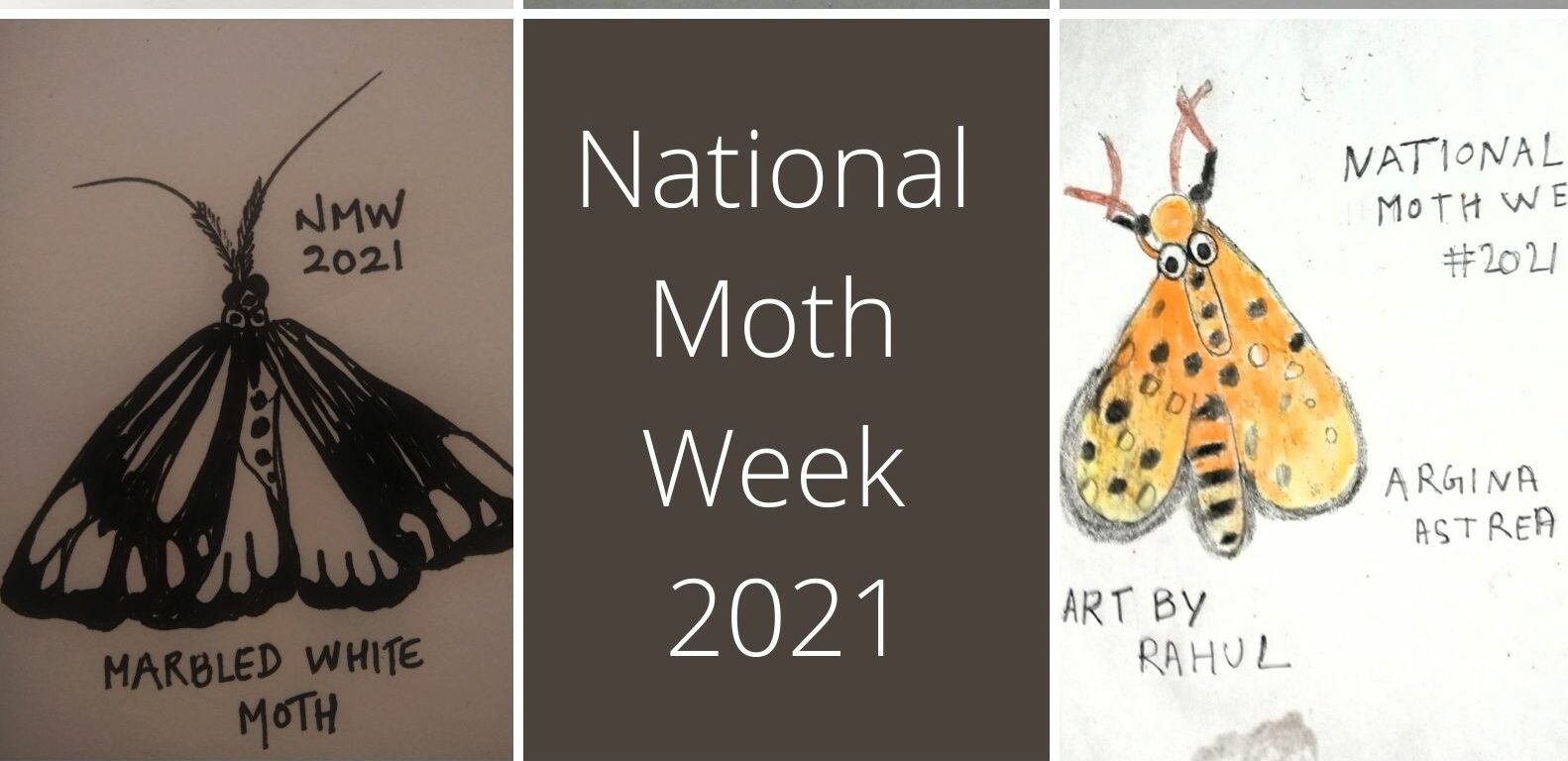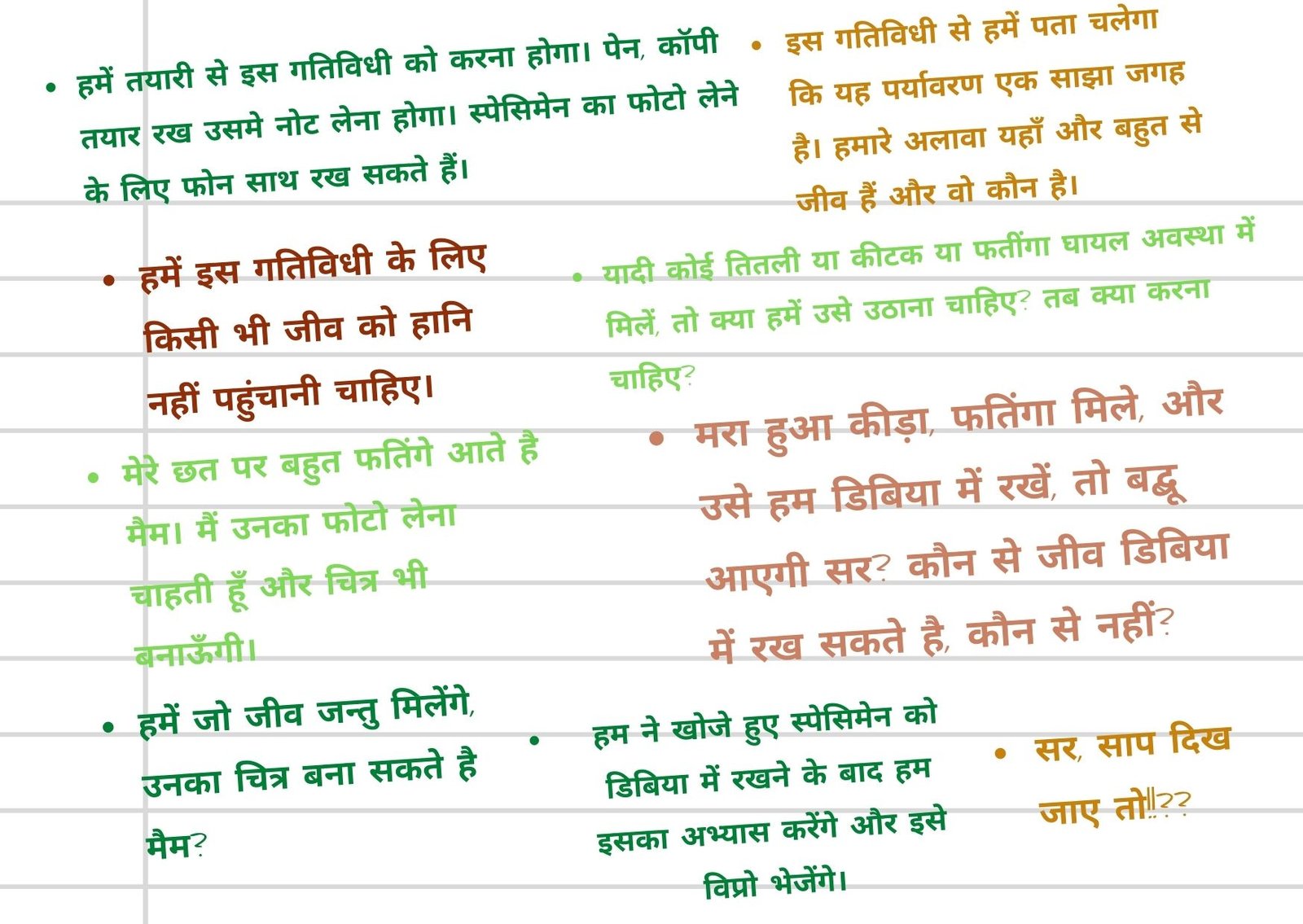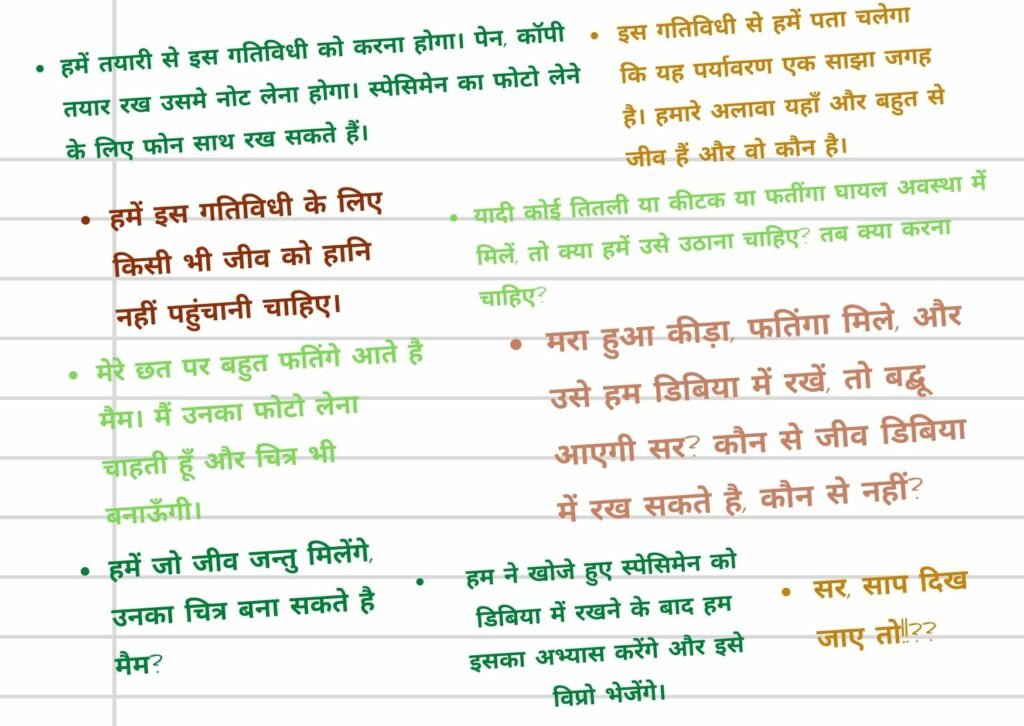The moth flutters and swirls,
goes round and round,
but does it make a sound?
For it knows you are asleep.
So when you see a drowsy moth,
What should you do?
Let it snore away.
Inspired by a poem by David L. Harrison
The country celebrated National Moth Week from 17th to 25th July 2021. Elementary school students of government schools of Darbhanga, North Bihar steeped into exploring biodiversity as part of Wipro Earthian 2021, joined the National Moth Week celebrations this year, befriending these fascinating creatures. We hope there entry into the world of moths leads to sustained interest and positive actions on behalf of students and teachers that makes the world a safer and friendlier place for moths.
For 7 days, the team members of Aripana, along with teachers and students, learnt about one new moth by sharing pictures, their unique characteristics and sketching them. We even decided to focus on moths that have been seen particularly in North Bihar, in the year 2021. Below is a collage of some of the sketches by students and teachers, of the moths we learnt about.
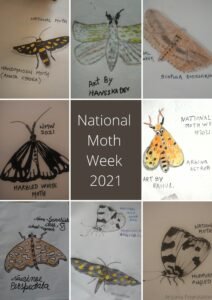
This was quite a fun exercise and one that educated us quite a bit. During the process we were acquainted with various Indian platforms on the internet that are dedicated to moths (and other biodiversity) – documenting the names, characteristics, their occurrence, habitat, habits, etc. Two platforms we found to be quite comprehensive were The Moths of India and inaturalist. We also came across some helpful groups on Facebook, dedicated to moths.
It is the citizens, residents and common men and women of the country that have contributed to creating these platforms and the information on it. Through Citizen Science initiatives, individuals concerned and passionate about biodiversity, flora and fauna, contribute information about the natural world around them helping create very precious records of various species, each important in maintaining our ecological balance.
Team Aripana would like to introduce children to Citizen Science initiatives, supporting students and teachers to become creators of knowledge themselves – recording and sharing information about the natural world around them.
Jyoti Roy, Teacher, Heycock Institution, Laheria Serai, Darbhanga was traveling during the NMW week but succeeded in contributing to the week long exercise. “I also tried to draw a moth as I thought it would be the best way to encourage the children to do so along with making them aware of the kinds of moths present in their surroundings. And I anyway love activities related to nature.” We are so happy Jyoti Mam joined in despite her busy schedule, choosing to inspire students by her own actions.
Very soon, we had Nutan Kumari, Teacher, Bansidas Kanya Madhya Vidyalay contributing too. She believes drawing is a critical aspect of studying Biology as the skills required to draw, encourage observation and enhance knowledge of the world around us like no other medium. She not only enjoyed sketching moths but also followed it up with a lovely sketch of a pond ecosystem. “I was inspired to draw moths by the children and I went on to create a visual representation of the Pond Ecosystem as we were anyway teaching students the chapter पौधों और जंतुओं का संरक्षण : जैव विविधता.”
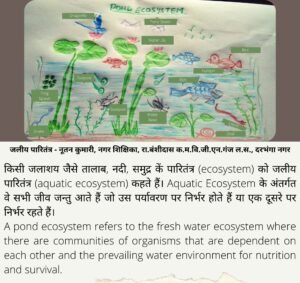
We could not been happier with how the online science classes resulted in so much creativity and that too, on behalf of everyone, be it teachers or students or members of team Aripana. We hope to initiate a sustained project with the students and teachers soon, one that helps them be Citizen Scientists.
Concluding this post with samples of leaf art made by some students – busy as they were – exploring the leaves available in their immediate surroundings and the myriad ways in which they enrich our lives and the world in which we live.
